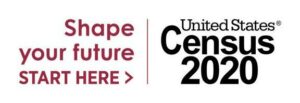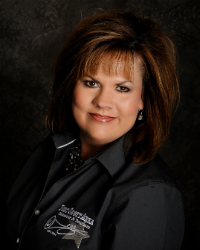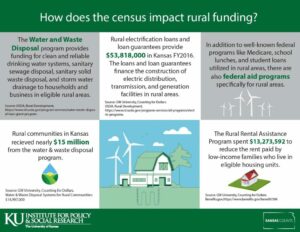Click below for the full report:
https://www.coronavirus.kdheks.gov/DocumentCenter/View/936/4-22-20-update-numbers
Click below for the full report:
https://www.coronavirus.kdheks.gov/DocumentCenter/View/936/4-22-20-update-numbers
State Treasurer Jake LaTurner to Give Away $50,000 in Scholarships to 50 Nurses in the State of Kansas
Topeka— In honor of National Nurse’s Week and in recognition of all those in Kansas who continue to serve the people of our state by working in the field of nursing, Kansas State Treasurer Jake LaTurner with the support of the Kansas State Board of Nursing will be giving away fifty, $1000 scholarships to Kansas residents with a current nursing license as defined by the Kansas Nurse Practice Act (https://ksbn.kansas.gov/npa/).
“You certainly don’t have to look very far to find someone you know that is serving in the nursing field in Kansas. These are hard-working individuals who spend many hours on their feet caring for people in some of their most trying times, physically and mentally. If you know someone you’d like to thank for the work that they do, now is your opportunity to nominate them for one of these scholarships,” said Treasurer LaTurner.
“Nurses time after time have proven how dedicated and passionate they are about helping others. They have been heroes on the frontline in providing care during the COVID-19 pandemic. This is an excellent way to show them how appreciated they are. Please nominate a nurse for one of these scholarships, in honor of National Nurse’s Week, as a way to say, “Thank You” for your dedication to the nursing profession!” said Executive Administrator for the Kansas State Board of Nursing Carol Moreland, MSN, RN.
The full contest rules can be found at https://kansasstatetreasurer.com/nan.html. The scholarship money will be placed into a Kansas LearningQuest 529 account, which can be used to pay off student loans, pay for continuing education at a qualified higher education institution, or may be saved for the future educational costs of a loved one. Nominations will be accepted through midnight May 12, 2020. All completed entries will be considered and winners will be notified by May 19, 2020.
No taxpayer funds are being used to fund these scholarships.
Topeka, Kan. – Kansas is once again a national leader in wind-generated renewable energy, according to the American Wind Energy Association’s (AWEA) Annual Market Report.
Kansas ranks No. 2 in the nation for wind energy production as a share of total electricity generation, joining Iowa as one of only two states with more than 40 percent of the state’s total electricity produced by wind power in 2019.
Governor Laura Kelly noted the increase in wind energy production in the state.
“Wind energy is now the state’s largest source of electricity, which translates into savings for electricity customers – residences and businesses – across Kansas,” the Governor said.
Key metrics and rankings highlight the success of Kansas’ continued investment in wind energy.
“Not only is Kansas wind energy production good for the environment, it’s also good for business,” Secretary of Commerce David Toland said. “The wind energy sector employs thousands of Kansans and contributes billions of dollars in capital investment to our state each year.”
AWEA’s annual reports provide an in-depth look at U.S. wind energy each year. Wind is now the largest source of renewable energy in the U.S., reliably supplying more than seven percent of the country’s electricity.
For more information on wind energy in Kansas, visit www.kansascommerce.gov/wind.
Bourbon County has six cases.
“The reason the number of cases went from 7 to 6 is because one of the positive cases was living in Bourbon County, but was actually a resident of Woodson County, KS. So, now Woodson County has 5, where they had 4 cases,” according to Rebecca Johnson, administrator of Southeast Kansas Multi-County Health Department.
For a complete report click below:
https://www.coronavirus.kdheks.gov/DocumentCenter/View/921/4-21-20-update-numbers
TOPEKA – In an effort to help Kansans who put their health and lives on the line during the COVID-19 pandemic, Governor Laura Kelly is directing the Kansas Department of Labor (KDOL) to evaluate all of its processes and procedures for handling workers compensation claims filed by law enforcement, firefighters, emergency medical service providers and health care workers that are reasonably related to the pandemic.
KDOL will draft and submit a temporary regulation and develop or prepare potential legislation designed to create workers compensation coverage for our first responders and healthcare workers who contract COVID-19 while assisting in the State’s response to the pandemic. The regulation and proposed legislation will create a presumption that first responders and healthcare workers who contract COVID-19 contracted the disease arising out of, and in the course of their employment. The legislation will be reviewed or developed in time for consideration by the Kansas Legislature at the next possible opportunity, special or regular session, whichever occurs first.
Should any law enforcement, firefighters, emergency medical service providers or health care workers who contract COVID-19 while assisting in the State’s response to the pandemic be found not covered by workers compensation, the Governor’s office will request that the Legislature establish a special fund to satisfy claims incurred during the emergency.
“It is imperative that we stand behind emergency responders, healthcare workers and the many other steadfast Kansans who serve the public each and every day, at risk to their own personal health and safety,” the Governor said.
“KDOL stands ready to assist in this expansion of workers compensation coverage for our healthcare workers and emergency responders,” Secretary Delía García said. “We are working on the regulation and reviewing Kansas’ current work comp statutes now.”
TOPEKA, Kan. – Kansas Department of Corrections (KDOC) Secretary Jeff Zmuda announced today that one staff member at Topeka Correctional Facility (TCF) tested positive for COVID-19 on Monday, April 20. This is the third KDOC facility with a confirmed case, with the first cases reported at the Lansing Correction Facility and Wichita Work Release Facility.
The staff member at TCF is a male over the age of 20. In order to protect the identity of the person, no other information will be released.
The KDOC has been in consultation with officials from the Kansas Department of Health and Environment (KDHE) on next steps to address these circumstances. As a result of that consultation with KDHE, the following steps were implemented:
“Our corrections staff are committed to their work of preparing our residents for a successful return to their communities,” Zmuda said. “Our staff take that responsibility very seriously and we will continue to work with KDHE to ensure that we are conducting ourselves in a way that ensures the health and safety of everyone.”
The Topeka Correctional Facility is Kansas’ only all-female prison with a capacity of 948. The facility houses minimum, medium, special management and maximum custody residents.
For current information on COVID-19 in Kansas, and to sign up for updates, go to the KDHE COVID-19 Resource Center at kdhe.ks.gov/coronavirus.
###

Highway construction projects are continuing across the state with modified work practices. And as always, work zone safety is a top priority for the Kansas Department of Transportation, Kansas Turnpike Authority and partner organizations. Unfortunately, there are oftentimes close calls in work zones.
KDOT Equipment Operator Specialist Kent Portenier, from the Phillipsburg office, realized a vehicle traveling through a work zone did not see him.
“I took off towards the ditch just as the driver hit the corner of the stopped pickup,” Portenier said. “The driver also swerved into the ditch and fortunately missed hitting me as I was running to safety.”
KTA Structures Worker Caleb Provo, from the Wichita office, was in a dump truck during a striping operation when he saw a semi traveling in the wrong lane.
“There was no way the driver could stop in time, and he tried to – unsuccessfully – squeeze between me and the barrier wall to avoid a collision,” Provo said. “Ultimately, the semi driver ended up crashing into the back end of my attenuator.”
Portenier, Provo and others are sharing their stories this week as part of a blog series to help illustrate the importance of work zone safety. Read all the blogs here –www.kansastransportation.blogspot.com.
“Close calls are all too common for highway workers, law enforcement and emergency responders who are serving the public,” said KDOT State Transportation Engineer Burt Morey. “It’s imperative that all drivers make paying attention and focusing on the road their main priorities every time they get in a vehicle.”
National Work Zone Awareness Week, which is April 20-24, raises awareness of the dangers highway workers and motorists face in work zones. Last year in Kansas, 1,420 work zone crashes occurred in which 437 people were injured and seven people were killed. A few locations around the state will be lit in orange to highway work zone safety, such as the Amelia Earhart Memorial bridge in Atchison.
For more information about work zone safety in Kansas, go to KDOT’s website, www.ksdot.org, and click on the work zone safety slide.
Bourbon County has six cases.
Corrected:
“The reason the number of cases went from 7 to 6 is because one of the positive cases was living in Bourbon County, but was actually a resident of Woodson County, KS. So, now Woodson County has 5, where they had 4 cases,” according to Rebecca Johnson, administrator of Southeast Kansas Multi-County Health Department.
https://www.coronavirus.kdheks.gov/DocumentCenter/View/912/4-20-20-update-numbers


Why participate in completing the census?
According to the census website: https://www.census.gov/programs-surveys/decennial-census/2020-census/about/why.html
Here are the reasons:
Federal funds, grants and support to states, counties and communities are based on population totals and breakdowns by sex, age, race and other factors. Your community benefits the most when the census counts everyone. When you respond to the census, you help your community gets its fair share of the more than $675 billion per year in federal funds spent on schools, hospitals, roads, public works and other vital programs.
A post from the Kansas Dept. of Commerce explains some more detail of why it is important for rural areas to send back the census forms:

The current census response rates compared to the state and national average and Bourbon County were pulled together by Madison.
The response rates:
National- 48.6%
State- 53.3%
Bourbon County- 45%
City of Fort Scott- 46.8%
“Becki Roberts is our local ‘on the ground’ contact for the census leading the local census takers, etc.,” Madison said.
Online, phone and mailed self-responses will continue throughout the data collection process, according to information provided by Madison.
In light of the COVID-19 outbreak, the U.S. Census Bureau is adjusting 2020 Census operations in order to:
Under the adjusted 2020 Census operational plan, field activities would resume after June 1, 2020, as Area Census Offices begin returning to full staff capacity.
Extended Time To Collect Data
For more info: 2020census.gov
Today, Governor Laura Kelly announced Kansas has received additional supplies and personal protective equipment (PPE) to expand COVID-19 testing in Finney, Ford, Lyon and Seward counties.
“I want to thank our federal partners for their ongoing efforts to help our state response to the COVID-19 pandemic,” Kelly said. “I particularly appreciate the assistance from Senator Pat Roberts and Senator Jerry Moran.”
Kansas Department of Health and Environment is working closely with the Centers for Disease Control and Prevention to test and contain recent clusters of positive coronavirus cases in Kansas counties centered around food and meat processing plants.
“In order to fight this pandemic, collaboration at the state, local and federal level is paramount,” Dr. Lee Norman, KDHE Secretary, said. “Expanded testing and additional supplies from the federal level will equip and inform our state and local health officials as they work to protect the health of Kansans.”
The plants in southwest Kansas account for 25 to 30% of the country’s beef processing. “Agriculture is a facet of our state’s most critical infrastructure – Kansas doesn’t just feed the state, we feed the world,” Kelly said. “This is particularly true of our frontline workers in meatpacking plants across the state who process a significant portion of the nation’s supply.”
Since the start of this crisis, the Governor and members of her administration have been in communication with those plants and representatives of their employees.
The facilities have modified several production and shipping systems and have taken proactive measures including temperature and health screenings, enhanced sanitation and social distancing.
In recent weeks, Kansas has struggled to obtain the necessary supplies needed to test and treat coronavirus patients. The State received their allocation of the Strategic National Stockpile in late March. PPE received from the SNS was quickly distributed to counties throughout the state based on population.
Kansas is pleased to be able to deploy this collaborative effort between local, state and federal partners to proactively address these clusters in a strategic response to protect the nation’s food supply and the health of our essential food workers.
Department for Children and Families Announces Hero Relief Program
The program provides child care subsidies to eligible health care workers, first responders and other essential workers
Governor Laura Kelly and DCF Secretary Laura Howard today announced efforts to support parents and childcare providers during the COVID-19 pandemic. The “Hero Relief Program” expands DCF’s child care assistance subsidies for families and provides financial support directly to child care providers. The new program specifically targets health care workers, first responders and other essential workers.
“We know these essential workers are risking their health every day to protect others,” Kelly said. “The Hero Relief Program is our way of saying ‘we’ve got your back’ by making sure families have access to quality affordable child care.”
Beginning Monday, April 20, child care subsidies will be available to essential workers who financially qualify. The list includes:
In order to qualify, families must have countable gross income at or below 250% of the federal poverty level. For an average family of four that equals a monthly income of $5,458. Families will receive the full DCF subsidy amount based on their family size, with no family-share deduction.
“During a time when these everyday heroes are working long hours, we hope this program helps relieve some of the financial burden they’re experiencing,” Howard said. “It’s our duty to support families during this uncertain time so we encourage families to apply.”
The Hero Relief Program also supports child care providers by providing a menu of stipends and grants to assist during the pandemic.
Grants may include:
For more information and for instructions on how to apply, visit KSHeroRelief.com.
For more information on COVID-19 visit: www.kdheks.gov/coronavirus.
Bourbon County remains at seven cases of COVID 19.
To see the full report:
https://www.coronavirus.kdheks.gov/DocumentCenter/View/898/4-17-20-update-numbers